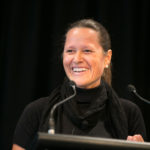
Women and Worms – Must-knows for Women of all Ages
Women with children and without, women of reproductive age and girls prior to this, all of us need to know more about worms! Enterobius vermicularis aka threadworm or pinworm, is the most common helminth infestation in Australia and only uses humans as hosts. In this age of promoting microbiota diversity, are worms desirable or do they represent an under-estimated threat to some individuals’ health? Not restricted to affecting pre-schoolers as many imagine, these helminths can be a problem at any age and are especially problematic in females where migration to the genitourinary system is common. Frequently perceived by patients as a transient irritation that can be readily treated with OTC pharmaceuticals, a building body of scientific evidence suggests a collection of much more serious potential health consequences beyond the gut. In this presentation Rachel reviews the latest evidence on this common helminth and its potentially negative effects on the health of girls and women, best diagnostic methods to confirm this is at play and revised treatment strategies that reflect our updated understanding of gut physiology.
Learning Objectives
- Discuss the proposition that gastrointestinal worms constitute another part of healthy microbiota – present evidence both for and against
- Review the mechanisms by which Enterobius vermicularis can readily gain access and cause problems in extra-intestinal locations especially in women
- Update knowledge on the potential health sequelae of Enterobius vermicularis for young girls: from bed wetting to vulvovaginitis to behavioural problems
- Update knowledge on the potential health sequelae of Enterobius vermicularis for women: from appendicitis to mood disturbance, from menstrual irregularity to infertility
- Review the diagnostic clues and the gold standard investigation for Enterobius vermicularis
- Outline new scientific understanding regarding the body’s mechanisms for preventing colonisation of worms (all types)
- Outline new management strategies based on this contemporary understanding of the body’s innate defence against these helminths
Rachel Arthur BHSc. BNat (Hons) MNHAA
Rachel Arthur is a respected and widely published Australian naturopath specialising in integrative nutrition. With over 20 years of experience in both the clinic and the classroom, Rachel has become one of Australia’s leading nutritional educators, delivering post-graduate training & mentoring to allied health care professionals and doctors alike. Regularly asked to speak at key conferences and contribute work to authoritative texts, including all 4 editions of the award-winning: Herbs & Natural Supplements – An Evidence Based Guide (Elsevier), while still maintaining a stimulating private practice. Rachel’s ongoing enthusiasm for integrative health and for education make her presentations both inspiring and empowering experiences for attendees and attract wonderful feedback.

Is your home making you sick?
In the past thirty years life threatening allergic reactions have increased fourfold, autism now affects 1 in 60, Attention Deficit Hyperactivity Disorder affects 7% of children, 25% of the population are diagnosed with allergies, breast cancer has almost tripled, the age of puberty is declining, sperm count has dropped by 50% and IVF is where you go to have children. Could these conditions be linked to allergens like mould, chemicals and electromagnetic fields in our homes? Absolutely!
Healthy Home Expert, Nicole Bijlsma is a building biologist, bestselling author, PhD candidate and CEO of the Australian College of Environmental Studies (RTO 21740) which she established in 1999 to educate people about the health hazards in the built environment. Nicole is an accomplished naturopath and acupuncturist, has lectured at tertiary institutions for almost 30 years, has published in peer reviewed journals, written extensively for Body+Soul newspaper, is regularly consulted by the media to discuss mould, electromagnetic fields and toxic chemicals, and lectures in Australia and abroad about environmental health issues. Nicole and her husband Mark manufacture the Abode cleaning product range and the “It’s Your Body” personal care range which was developed for people with skin and chemical sensitivities
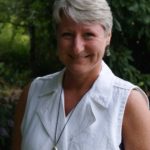
30 minute talk for practitioner audience:
Dysbiosis and Endogenous Toxins: Causes of Chronic Illness and Strategies for Eliminating Them
The human microbiome in recent years has received increasing attention for the role it plays in both physical and mental/emotional health, connecting imbalanced large intestine flora and the presence of microbes in the small intestine (SIBO) with inflammation, endogenous toxicity, and pathologies both within and beyond the gastrointestinal system. Traditional naturopathic medicine has acknowledged the connection between GIT inflammation and systemic illness for many years, to the extent that, along with dietary interventions, correcting microbial imbalances and supporting detoxification systems serves as a foundation of modern naturopathic practice for most chronic illnesses. The focus of this presentation will be on the relationship between dysbiosis in the GIT, systemic inflammation and the burden placed by these on the body’s detoxification systems. Therapeutic strategies that include correction of dysbiosis, dietary intervention, and support of the liver and other detoxification systems from a traditional naturopathic perspective will be discussed.
Learning Objectives:
· To understand how the microbiome relates to both GIT and systemic inflammation through production of endogenous toxins that enter portal and systemic circulation
· To review pathologies that haven been connected to the microbiome via recent research
· To understand the endogenous and exogenous toxic loads that are placed on the liver and other routes of elimination in modern life and how GIT inflammation is additive to this load, creating an overburdened system, particularly in those with genetics that reduce either digestive or detoxification capacities
· To overview a naturopathic approach to correcting dysbiosis, maldigestion, and overload of the body’s systems of detoxification and elimination
30 minute talk for parent/carer/patient audience:
The Microbes in Your Gut: How They Can Burden Your Liver and Cause Chronic Illness
There is a growing understanding in the research of the connection between imbalanced microbes in the large intestine or misplaced microbes in the small intestine and various types of chronic illness that manifest outside of the digestive tract. Along with this, there is a growing understanding of the role of systemic (body-wide) inflammation in many types of chronic illnesses. Traditionally, naturopaths have acknowledged both of these dynamics in the body and have connected them to the burden that is placed on the liver and the body’s other systems of detoxification and elimination. This presentation will focus on the three-prong strategy of correcting microbial balance, eliminating sources of maldigestion, and supporting the body’s systems of detoxification and elimination in order to reduce toxic load as a cause of chronic illness.
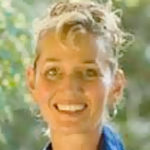
Dr Robyn Cosford is an integrative medical practitioner of many years standing, having lectured to post graduate medical practitioners for over 20 years as part of the ACNEM faculty. She has an honours degree in medicine, and is a Conjoint Lecturer for the University of Newcastle. Her interest in brain-immune-gut concepts dates nearly 20 years, when she convened the Mind of a Child conferences in Australia in 1998 and 2000. She has been involved in ongoing clinical practice and research in these areas.
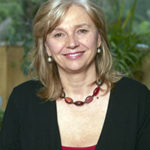
Connecting airways, breathing and sleep. Understanding their importance for children’s health, brain function and neurodevelopment.
Disorders of sleep and breathing are becoming increasingly common in modern children. Research shows that sleep and breathing disorders often co-exist and have a range of negative impacts on children’s health, behaviour, and brain function and neurocognitive development. Sleep/breathing disorders in children have been linked with maladaptive behaviours, poor school performance, moodiness, irritability, depression, hyperactivity and lower IQ. Understanding how to effectively solve the problems of poor sleep, insufficient airway size and poor breathing in children can be a key missing link to healthier, happier, calmer and more focused children.
Presenter Biography
Dr. Rosalba Courtney is an osteopath with over 35 years experience and was one of the first practitioners of the Buteyko Method in Australia in the early 1990s. She received a PhD from RMIT University for her research on the topic of “Dysfunctional Breathing: Its Parameters, Measurement and Clinical Relevance” in 2011. She is internationally recognized for her work in this field, having published many reviewed articles and several book chapters on this topic. Rosalba has presented at many national and international conferences, including the Thoracic Society of Australia and New Zealand annual conference in 2015 and the International Society of Respiratory Psychophysiology Conference at Rutgers University in 2104. She is actively involved in research and mentoring of osteopathic students at Southern Cross University in Lismore. Rosalba is renowned for her ability to synthesis complex information from the scientific literature to extract its practical significance for the clinician.
Rosalba conducts training programs for Osteopaths, Physiotherapists, Dentists, Speech Therapists and other health professionals on Integrative Breathing Therapy. She practices in Sydney and integrates osteopathy, breathing retraining and orofacial myology to treat a broad range of conditions in children and adults.
Learning Objectives:
- Understand the prevalence of sleep and breathing disorders in children
- Understand how sleep affects children’s neurocognitive function, mood, learning capacity and behaviour.
- Understand how airway obstruction and breathing dysfunction affect sleep behaviours and sleep quality
- Learn to recognise signs of sleep disordered breathing in children
- Become aware of multi-disciplinary and integrative medicine solutions for breathing related sleep disorders in children.
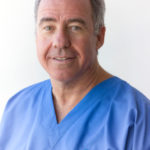
Topic: Oral Health – a user’s and practitioner’s guide.
Overview: The mouth provides a wealth of information about a person’s health. When you know what to look for you can deliver significantly better health outcomes to your patients.
The mouth is the beginning of the respiratory and digestive systems, the site of the two most common human infections (i.e. gum disease and tooth decay) as well as being highly innervated neurologically. With the choice of dental materials the issues of toxicity and biocompatibility also need to be considered.
When oral health and function are compromised the health of rest of the body is affected. It is surprising that given its significance oral health is so frequently ignored when treating a patient’s general health.
Learning outcomes:
- Describe the two most common infections occurring in the population, tooth decay and periodontal (gum) disease.
- The vectors by which chronic inflammation and the toxicity of dental materials have the potential to impact on systemic health
- Assess the impact of diet on craniofacial development, potential upper airway problems and possible impact on posture
- Identify the link between oral health, sleep disordered breathing conditions and the physical and mental health of our patients
- The link between parafunction (e.g. clenching and grinding), and chronic pain of the head neck and jaw (e.g. chronic tension headaches)

Anger, Aggression and Violence in Children
Key Topics-Learning Objectives
- Mood disorders in kids outline- including escalating rates
- No “DSM” category for anger/aggression/violence
- Where does anger/aggression/violence “fit” into our current “psychiatric” model
- Is it simply a “behavioural” disorder?
- Outline of biochemistry of serotonin and GABA production
- Outline on mode of action and side effects of current drugs used to treat anger/aggression/violence in children
- Outline of pyrrole and high copper and undermethylation, emphasising that it is not all about pyrroles
- Outline of Bill Walsh studies on violence in prisoners
- Advice on minimal other studies on anger/aggression/violence- the few studies out there will be presented
- Provide information about the clinical trial attached done with Griffith Uni and improvements seen using biochemical therapy
- Outline of treatment approach
Dr Kelly Francis is a GP specialising in Integrative Healthcare and Nutritional and Environmental Medicine. She has a particular interest in treating brain-gut disorders (Autism, ADHD, anxiety, bi-polar, depression, behavioural & mood disorders) which she does by focusing on dietary changes, removal of food allergens, correction of nutrient deficiencies, correction of gut microbial imbalances, and use of nutrient therapy to combat biochemical problems.
Dr Francis has trained with ACNEM, Bio-Balance and Mindd Foundation. She enjoys providing holistic care to her patients, and strives to provide treatment that is based on each patient’s unique biochemistry. The gut is always a focus of her treatment approach. She uses a blend of naturopathics, nutrients, bio-identical hormones, and pharmaceuticals where needed. A major part of the treatment involves dietary changes and significant effort on the part of the patient.
Dr Francis has recently done an open-label pilot trial with Griffith University that involved using nutrient therapy only to treat violent boys between the ages of 4-14.
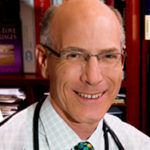
MBBS (Hons QLD) FRACGP, FACNEM:
Dr Golik graduated from University of Queensland with 2nd class Hons in 1975; 2 years junior RMO at Royal Brisbane Hospital; 1 year as senior RMO at Atherton Hospital, Nth Qld. He commenced in solo Private Family Practice in Clayfield, Brisbane in 1979. He later formed a multi disciplinary clinic in Clayfield in 1995. In 2016 he had moved his clinic to more spacious and functional facility at Stafford in Brisbane. Dr Golik gained his fellowship in the RACGP in 1982; and is a Fellow and occasional lecturer of the Australasian College of Nutritional and Environmental Medicine. His special areas of interest and passion are Autism, ASD, ADHD, Musculoskeletal medicine; Dietary and lifestyle therapy; Thyroid conditions; and the Metabolic Syndrome. He has attended the Walsh Outreach / Training since 2005 and has also attended the MINDD conferences since 2005.
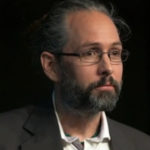
ND, BNat(Hons), PhD, FNHAA, MASN, FACN
The Vaginal Microbiome – The Vital Roles of this Under-Appreciated Ecosystem
Humans, like all animals, coexist in intimate, mutually-dependent relationships with microorganisms – generally referred to as microbiomes. There are a number of microbiomes that play key roles in human health. The most well-known, and well-researched, is the gastrointestinal microbiome. In this lecture, however, we’re going to be exploring another vital, but generally underappreciated, ecosystem – the vaginal microbiome.
Learning Objectives:
- Detail what characteristics define a healthy vaginal microbiota
- Demonstrate an understanding of the importance of this ecosystem to a woman’s health
- Discuss two of the most common vaginal dysbiotic patterns – bacterial vaginosis and Group B Streptococcus – and their potential health implications.
- Explore natural medicines that can be used to nurture the vaginal microbiome, restore it to a healthy state after disruption, and treat bacterial vaginosis and Group B Streptococcus.
Jason Hawrelak, PhD, is a research scientist, educator, naturopath and Western herbalist with more than 18 years’ clinical experience. His passion for gastrointestinal health, the human microbiome, and probiotics was ignited during the final year of his naturopathic training. Subsequently, Dr Hawrelak did his Honours (First Class) and PhD degrees in the areas of the gastrointestinal microbiota, irritable bowel syndrome, the causes of dysbiosis, and the clinical applications of pre- and probiotics. He has written extensively in the medical literature on these topics – including 16 textbook chapters – and his research has been cited over 800 times.
Dr Hawrelak has taught health professionals at both the undergraduate and postgraduate level for the past 18 years. He currently coordinates and teaches the Evidence-based Complementary Medicine Programs in the College of Health & Medicine at the University of Tasmania (Hobart, Australia) and is the Gastrointestinal Imbalances lecturer in the Master of Science in Human Nutrition and Functional Medicineprogram at the University of Western States (Portland, Oregon). He is also a Visiting Research Fellow at the Australian Research Centre for Complementary and Integrative Medicine (ARCCIM) at the University of Technology Sydney (Sydney, Australia).
ND, BNat(Hons), PhD, FNHAA, MASN, FACN
Dr Hawrelak is on the Medical Nutrition Council of the American Society for Nutrition and in July 2015, Jason was awarded a Fellowship from the American College of Nutrition for his significant contributions to the teaching and practice of nutrition in Australia and North America. Jason is also a Fellow of the Naturopaths and Herbalists Association of Australia. He is Chief Research Officer at ProbioticAdvisor.com, which offers a searchable database that enables easy, evidence-based prescribing of probiotic products and online resources for clinicians, and health-conscious members of the public, to learn more about the human microbiome and how they can positively influence these ecosystems.

Women’s Health Workshop – “The interplay of the immune system and the microbiome across the lifecycle”
(Pre conception, pregnancy, breastfeeding, neonatology, paediatrics, adolescence and women’s health)
Biography
Leah Hechtman
PhD (Candidate), MSciMed (RHHG), BHSc (Naturopathy), ND, FNHAA
Leah is an experienced and respected clinician and has been in practice for over 20 years. She specialises in fertility, pregnancy and reproductive healthcare for men and women. Her primary passion is her clinical practice where she is inspired and humbled by her patients.
She has completed extensive advanced training and is currently completing her PhD through the School of Women’s and Children’s Health (Faculty of Medicine [UNSW]).
She is a keynote speaker, author and educator to her peers; Director of The Natural Health and Fertility Centre, Sydney; and mother to two gorgeous boys.
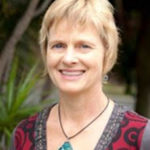
Safe Removal of Dental Amalgams
Dental amalgams containing mercury can drive sever chronic and complex illness from Chronic Fatigue Syndrome and ADHD to auto-immune disease.
Dr Prue King is the founder & co-director of Lotus Dental and Lotus Health in Neutral Bay, Sydney. She actively supports dental health in the context of the whole body by working with other practitioners including naturopaths, chiropractors, osteopaths, massage therapists, holistic GPs, and psychologists to help improve the structural, biochemical and emotional integrity of the body. Dr King has special interests in non-extraction orthodontics, improvement of the airway to help treat sleep & breathing disorders, safe amalgam replacement with biocompatible materials and children’s dentistry – with a philosophy of close monitoring of growing children. Dr King is a member of Australian Dental Association, International Association of Orthodontics, International Association of Oral Medicine & Toxicology (IAOMT), American Academy of Craniofacial pain, American Academy of Anti-Aging Medicine.

Among the notable leaps and bounds in understanding that have been made around the significance of the gastrointestinal microbiome to health in recent years, the focus has often remained on the individual. This certainly is progress, in terms of the ever-present need for more personalised models of healthcare, however this may neglect an equally growing need for researchers and clinicians alike, to further explore some more of the impacts that mother’s flora may have on child. Some exploration of impacts on metabolism, immune and nervous systems may be particularly warranted, as well as some of the ways this can be clinically assessed, and ideally addressed. To find the greatest harmony with these residents, and optimised legacy, possible.
Warren Maginn
BHSc. (Nutr. Med.) GradCert. (Hum. Nutr.)
Warren Maginn is a Clinical Nutritionist and College Lecturer, specialising in the personalised and functional management of chronic metabolic and immune disturbances. Warren holds a bachelor degree in Nutritional Medicine as well as postgraduate qualifications in Human Nutrition, and teaches bachelor students of Clinical Nutrition in Brisbane, whilst serving as the National Chair of Nutrition for the Australian Natural Therapists Association, and acting as a Scientific Advisor to practitioner resource companies, supporting Naturopathic and Medical practitioners in their use of Functional Pathology Testing, and tailored prescribing within personalised and integrative healthcare practice.

M.D., MPH, FRACP, FAAP, DTMH, IBCLC:
Dr Leila Masson is an integrative paediatrician who combines Western medicine with a nutritional, environmental and biomedical approach to help her patients attain optimal health. She received her medical doctorate from the University of Berlin, did her paediatric specialist training at the University of California at San Francisco. She received her Masters in Public Health from Harvard University and her Diploma in Tropical Medicine from the London School of Hygiene and Tropical Medicine.Leila has practiced in the US, New Zealand and Europe and volunteered for 2 years setting up a health clinic in rural Pakistan. She currently divides her time between Sydney and Berlin. She specialises in integrative treatment for children with ADHD, autism, behaviour and developmental problems, allergies and other childhood issues. Dr. Masson is the author of “Children’s Health A-Z”, a parents’ guide on treating common childhood illnesses with a natural yet effective approach. For more information see www.drleilamasson.com and FaceBook DrLeilaMasson where she posts about current research on children’s health. Dr Masson is a member of the Mindd Scientific Advisory Board.

The Medical Benefits of Fasting for Brain and Body
Helen is a clinical naturopath, nutritionist and herbalist in Sydney with post-graduate training in integrative treatment for metabolic, neurologic, digestive and immune disorders. She has been in clinical practice since 2001 and is regularly called on to speak at events for both professionals and the public and has lectured at the NZ institute of Sport. She wrote the chapter on paediatrics and ASD for the highly respected clinical textbook “Clinical Naturopathic Medicine” (Elsevier), coauthored “BubbaYumYum” with Charlotte Carr and Chef Pete Evans and “The Complete Gut Health Cookbook” with Chef Pete Evans. Helen is passionate about conscious living, real food, vital health and empowering individuals, families and organisations to find the joy in being well and fulfilling their potential. See www.helenpadarin.com for more info.
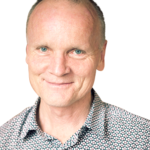
Phil Rasmussen
M.Pharm., M.P.S., Dip. Herb. Med.; M.N.I.M.H.(UK), F.N.Z.A.M.H.
Using Herbs to Fight Bacterial Infections
Herbal medicine shows much potential to help manage bacterial infections, and antibacterial activity has been shown for a large number of different phytomedicines, including against antibiotic resistant microbes. Additionally, several plant extracts and phytochemicals exhibit the ability to inhibit the development of drug resistance, and may make useful adjuncts to antibiotic therapy.
Phil will discuss some of the research into these areas, and appraise specific herbs and herbal strategies, for their potential to help reduce the strong selective pressure exerted by conventional antibiotics to promote bacterial resistance.
Learning Objectives for Practitioners:
- To gain a better understanding of the scale, mechanisms and clinical implications, of antibiotic resistance.
- To learn about the role of biofilms in promoting antibiotic resistance, and potential herbal strategies to help overcome this.
- Increasing their understanding of how herbal medicine can help enhance natural immunity to bacterial infections.
- To extend knowledge around how plants such as ginger, garlic, cinnamon, thyme, calendula, golden seal and manuka, can provide useful antibacterial actions, and use of these in clinical practice.
- To learn about some lesser-known herbs that can be useful as topical applications to bacterial infections.
- To gain a better understanding about the potential role of phytomedicines as adjunctive treatments that can be given concomitant to antibiotic therapy.
Phil is one of New Zealand’s most experienced phytotherapists with a clinic in Auckland where he has practiced for 24 years. He is also the founder and Technical Director of Phytomed Medicinal Herbs Ltd, a New Zealand-based manufacturer and exporter of herbal medicines for both practitioners and consumers.
Before pursuing herbal medicine Phil worked for more than 10 years as a pharmacist, and undertook research on antidepressant drugs and serotonin. He has lectured at naturopathic and herbal colleges, presented at conferences in New Zealand, Australia, and the UK, and written extensively on herbal subjects for both practitioner and consumer publications, for many years.
Phil has long had an interest in the role herbal medicines can play in the management of infectious diseases, and this has increased in recent years due to escalating concerns about antibiotic resistance.
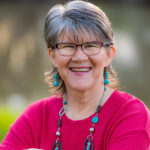
Trouble-Shooting the Pyroluria Protocol When It’s Not Working as Expected
Your client/patient tested positive for pyroluria, scored high on the questionnaires and is taking the recommended supplements but is not seeing the beneficial results you expect. This presentation will help you trouble-shoot with your clients/patients to figure out how their supplement protocols, their diets, digestive status and other health issues, plus environmental factors may be playing a role. We will cover foods that can be an issue, helpful foods to add, forms of zinc, what blocks zinc, what enhances zinc absorption, Lyme disease, heavy metals, sources of copper in the diet, and the sources and effects of stress.
Food Mood Expert Trudy Scott is a certified nutritionist on a mission to educate and empower anxious individuals worldwide about natural solutions for anxiety, stress and emotional eating. Trudy serves as a catalyst in bringing about life enhancing transformations that start with the healing powers of eating real whole food, using individually targeted supplementation and making simple lifestyle changes.
Trudy also teaches nutrition and mental health professionals, sharing all the recent research and how-to steps so they too can educate and empower their clients and patients. She is known for her expertise in the use of targeted individual amino acids, the social anxiety condition called pyroluria and the harmful effects of benzodiazepines.
Trudy is the author of The Antianxiety Food Solution: How the Foods You Eat Can Help You Calm Your Anxious Mind, Improve Your Mood and End Cravings and host of The Anxiety Summit, now in its 4th season. More at www.theanxietysummit.com Trudy is passionate about sharing the powerful food mood connection because she experienced the results first-hand, finding complete resolution of her anxiety and panic attacks.

Our bodies are intricately connected with our eco-system. Operating on this principle there are a range of natural therapies that gently support the body’s innate ability to heal, grow and thrive. Learn how and which microbes can benefit the body and brain for conditions as diverse as asthma, allergies, ADHD, migraines and other conditions; how nature improves mood and function; how diet can transform cognitive performance and overall body health. Dr Shetreat-Klein will cover; Terrain Medicine, Benefits of Dirt and Nature, Diet, Supplements, Botanicals, Essential Oils, Homeopathy, Flower remedies, Indigenous Healing.
Maya Shetreat-Klein, MD is a neurologist, herbalist, urban farmer, and author of The Dirt Cure: Healthy Food, Healthy Gut, Happy Child (Simon and Schuster, 2016), which has been translated into ten languages. She has been featured in the New York Times, The Telegraph, NPR, Sky News, The Dr. Oz Show and many more. Board certified in adult and child neurology as well as pediatrics, Dr. Maya completed the University of Arizona’s Fellowship in Integrative Medicine, and now serves on their faculty. She works and studies with indigenous communities and healers in Ecuador. In her book and her practice, she offers an integrative and spiritual approach to allow moving beyond chronic health problems in children and adults. She also founded the Terrain Institute, where she teaches Terrain Medicine™, an earth-based program for transformational healing.

Dr Elisa song is a board-certified, Stanford-, NYU-, UCSF-trained holistic pediatrician. She founded Whole Family Wellness (formerly Whole Child Wellness), an integrative pediatric practice in Belmont, CA – one of the first and most highly regarded holistic pediatric practices in the country. Dr Song created Healthy Kids Happy Kids – dedicated to empowering parents to take charge of their kids’ health … naturally!
Dr Song is a holistic pediatrician, integrating conventional pediatrics with functional medicine, holistic nutrition, homeopathy, acupuncture, herbal medicine, and essential oils. She is also a lecturer for the Center for Education and Development in Clinical Homeopathy (CEDH), Academy for Pain Research, Institute for Functional Medicine, and Holistic Pediatric Association, among others.
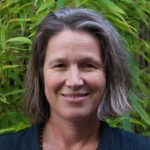
The Breastmilk Microbiome and Glycobiome – A sweet milky defence system
In the last five years there has been a dramatic expansion in the knowledge of the human milk microbiome and glycobiome (special sugars within breastmilk), both with regards to what they consists of and the role they play in infant health including, seeding and nourishing the infant microbiome, protection from infection, and the “training” of the infants immune and metabolic systems. During this workshop we will discuss some of these pertinent and intriguing findings. We will identify medical and lifestyle factors that can affect the breastmilk microbiome and outline simple steps for obtaining good breastfeeding help to support optimal breastfeeding. Ultimately we want to do what we can so that mothers and babies access these important and formative health functions.
Dawn Whitten
BNat (Hons), IBCLC,FNHAA
Dawn Whitten is a Naturopath, Western Herbalist, International Board Certified Lactation Consultant, Researcher and Educator. Passionate about protecting and nurturing the microbiome of the next generation, Dawn has a broad base of clinical experience with a focus on women’s health through pregnancy and beyond, as well as infant and toddler health. She has been in clinical practice for 15 years.
Dawn particularly loves to share her lactation knowledge with clinicians and she regularly presents at both National and International Conferences and Online Events. Dawn’s work is published in the peer-reviewed literature and she has contributed to clinical textbooks (including the Breastfeeding chapter in the soon to be published Advanced Clinical Naturopathic Medicine, Elsevier).
Dawn has been a research assistant in the area of herbal medicine safety in pregnancy and breastfeeding at Southern Cross University and has peer-reviewed in this area for the American Herbal Pharmacopoeia. Dawn coordinates two units within the Evidence-based Complementary Medicine Program in the College of Health & Medicine at the University of Tasmania. She is part of the research team at Probitic.Advisor.com and a clinical director at Goulds Natural Medicine in Hobart.
Dawn obtained a Bachelor of Naturopathy with First Class Honours from Southern Cross University (NSW, Australia). Her Honours topic was within the field of herb-drug interactions and part of this work was published in the British Journal of Clinical Pharmacology. Dawn has been awarded a Fellowship by the Naturopath and Herbalist Association of Australia for her contribution to the field of herbal medicine in Australia.

Talk title: Sex, appetite and immunity: Interplays between our microbiome and behaviour.
Dr Christabelle Yeoh
Learning objectives for practitioner talk:
- Be familiar with the microbiome as an endocrine organ.
- Understand the impact of changes in microbial diversity on immunity and appetite.
- Be aware of the influence of the microbiome and matters relating to sex.
- Integrate nutritional principles to address the core pathophysiology of neuroinflammation in the micrbiota-gut-brain axis
Dr Yeoh graduated from medicine at the University of London in 1999 and has obtained her membership with the Royal College of Physicians (UK). She has a Masters degree in Nutrition from King’s College London. After practicing hospital medicine, she worked as a physician in the field of Nutritional and Environmental Medicine. She is a member of the American and British Academies of Environmental Medicine where she received her NEM training. She moved to Australia in 2012 and is a medical practitioner integrating nutritional medicine with preventive health care and general practice. She is dedicated to developing NEM training for the Australasian College of Nutritional and Environmental Medicine and is the current president. She has a strong clinical interest in neurological, gastrointestinal and metabolic health. She is passionate about teaching on the interconnectedness of human metabolism, biology and behaviour.
